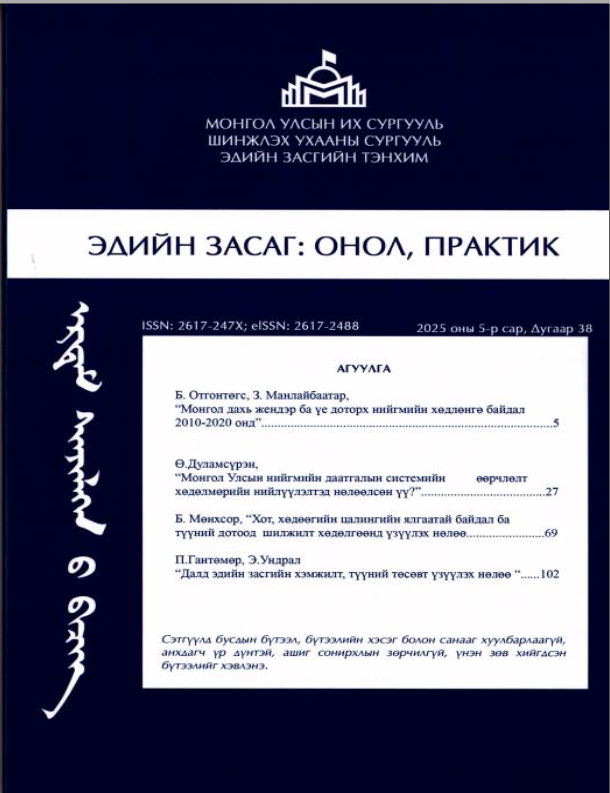DOES THE TRANSITION OF THE SOCIAL INSURANCE SYSTEM HAVE AN IMPACT ON LABOR SUPPLY? EMPIRICAL EVIDENCE FROM MONGOLIA
Keywords:
social security system; pension reform; labour supplyAbstract
This paper investigates whether the pension reform, specifically the shift from a Defined
Benefit (DB) scheme to a Notional Defined Contribution (NDC) scheme, affects labor
supply decisions in Mongolia, particularly before individuals approach retirement and
benefit claiming decisions. The Law on Individual Pension Insurance Contribution
Accounts, introduced on June 10, 1999, mandated that all employees in the formal sector
born after 1959 be covered by the NDC scheme.
To examine this, I use a sharp regression discontinuity design (RDD), leveraging data
from the 2000 Population and Housing Census and the 2002 and 2003 Labor Force Surveys.
The analysis focuses on labor supply responses, including employment status and labor
market participation.
The results from the 2002 and 2003 Labor Force Surveys indicate that the transition
from DB to NDC leads to an 11.6-17.9 percentage point decrease in women’s employment
and a 9.6-10.9 percentage point decrease in employment in low-wage growth provinces,
which are characterized by slower wage increases. However, no statistically significant effect
is found for men or for individuals living in high-wage growth provinces. The estimated
coefficients for labor participation are similar to those for employment, suggesting consistent
results across both outcomes.
Downloads
Downloads
Published
Issue
Section
License
Copyright (c) 2025 Economics: theory and practice

This work is licensed under a Creative Commons Attribution-NonCommercial-ShareAlike 4.0 International License.





